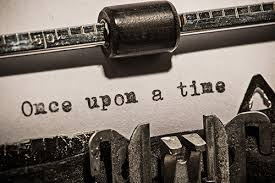Thursday, July 29, 2010
That Competitive Edge
I've been reading a few thrillers recently, branching out into authors I'm unfamiliar with. I thought this might be good for my writing - to get to know what other writers are doing.
I noticed a pattern, as is my wont.
Good reads are not always just about drama, conflict and characterization. More and more there seems to be a need for an over-arcing theme that is independent of the story.
Often this will take the form of an historical event or a branch of science or an intimate affinity to a subject unfamiliar to the reader.
I remember that Stephen King once said that he'd noticed that novels written by people with specialized knowledge had less trouble getting published than himself sometimes. (Who knew?)
Tradesmen who knew how to fix fences or pan for gold - and who weaved their specialization into their fiction - could sometimes create stories that were more compelling than mere dramas.
I suppose that's why certain authors have used their former professions to lift their books out of the ordinary. An ex-cop like Joseph Wambaugh springs to mind. An ex-doctor like Robin Cook. And ex-lawyers like John Grisham and Richard North Patterson. Many ex-teachers too like Dan Brown and JK Rowling use their gift for simple instruction to help guide their readers through complex story-lines.
This comes down to what media people call the 'angle'. Gone are the days when you can interest a publisher with lines like "this is a story about love, familial loyalty and triumph over adversity." You also need a theme, as in "set in a wildlife park" or "set against the backdrop of the Bosnian War" for example.
Writers often tend to suppress their other interests when it comes to fiction. Writers have a tendency to think that anything in their own lives is not appropriate for their own fiction.
This is a mistake I think.
If you have specialized knowledge about a subject, then by all means weave it into your story.
Do research and find little snippets of info, bizarre facts and show the methodology behind certain professions like banking, insurance or even plumbing, fishing or scrap-booking.
The most famous example of this in recent years is the new obsession with forensics. Who would have thought that something as intricate as DNA, fingerprints, blood spatter, pathology and criminal profiling would became such a fascinating arena, ripe for mass consumption?
Of course there's always been a huge market for crime and mystery. I suppose people like the combination of following clues and eventually seeking justice - especially if there are personal agendas and compelling characters involved.
In this regard, Sue Grafton was one of my favorite authors. She never ceased to inspire me. Not just as a good read, or as a great writer. I've found myself analyzing her technique too.
She wrote mysteries from the limited point of view of her protagonist, Kinsey Millhone. The stories are set in the late 1980s when forensics wasn't so sophisticated. Even computers were rarely used for anything (hard to believe this was such a short time ago, isn't it?)
I love the way Sue Grafton uses the 1930s detective genre to show her hero moving from place to place, interviewing a myriad of characters and uncovering the mystery while at the same time presenting the minutiae of Millhone's life. The detail is so personal you really feel you know this character's life as if it's real.
And that's the secret I think. To make fiction seem real.
This is where personal, specialized or well researched extra knowledge can help lift a story out of the ordinary.
Whether it's a deliberate focus on setting or reference to the specifics of a professional career or a detailed grasp of a subject other than writing - it all helps.
Being an expert - or appearing to be an expert - on something other than writing will help you sell your stories I believe.
I recently read "The Ghost" by Robert Harris - a fabulous novel about a ghost writer compiling a politician's memoirs. The main character says this:
"All good books are different but all bad books are exactly the same. All these bad books have one thing in common: they don't ring true. I'm not saying that a good book is true necessarily, just that it feels true for the time you're reading it."
Sage counsel indeed!
Worth bearing in mind the next time you want to bring something true - however seemingly minor or personal to you - into your own stories!
Keep writing!
Rob Parnell
Your Success is My Concern
Rob's Writing Academy
Subscribe to:
Post Comments (Atom)
The Writing Academy
Welcome to the official blog of Rob Parnell's Writing Academy, updated weekly - sometimes more often!


1 comment:
Really good sharing this.
Post a Comment